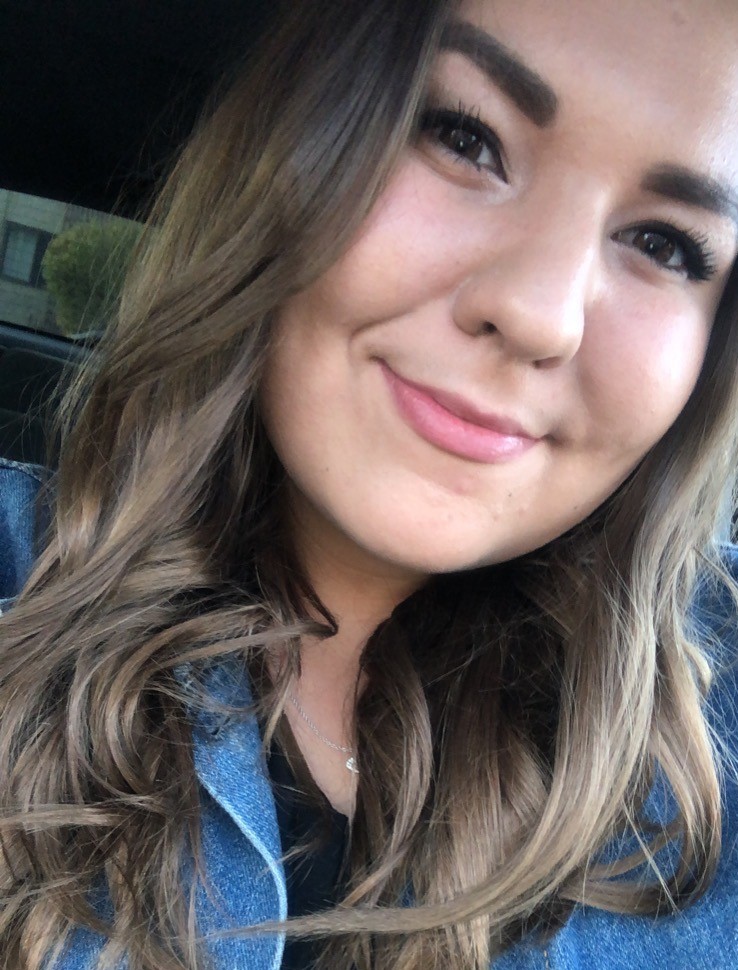
Embracing My Background
MentorSTEP chat with Samantha Moore
Samantha Moore is a fourth-year Kinesiology student who worked in summer 2020 as a MentorSTEP intern with Dr. Heather Foulds, Co-Scientific Director, aen mamawii kiiayaahk (Healing Together) Métis Health and Wellness Research Network, as well as the CIHR/Heart and Stroke Indigenous Early Career Women’s Heart and Brain Health Chair at the University of Saskatchewan.
When Dr. Heather Foulds was teaching a course in Kinesiology on contemporary health issues last winter, she mentioned to the class that she often hires summer research assistants – an open invitation for those who might be interested, to apply.
Samantha Moore lost no time. Reaching out to Dr. Foulds, the two discovered a mutual interest in learning more about Indigenous people’s life experiences. Dr. Foulds had multiple research projects on the go, and could use some help and support – and Samantha was ready to dive right in.
Since high school, Samantha had a passion for science, especially biology, human development and evolution. After graduation from Kinesiology, Samantha plans to pursue occupational therapy, to help others “as much as I can,” she declares.
The Covid-19 crisis, however, threw a bit of a wrench into the original summer research plans. Excited to spend some time in Dr. Foulds’ collegial lab and research group, working on new data collection, Samantha found her work suddenly shifting. “This has been a different learning experience,” she notes, but “there have been positives as well as negatives.”
Originally intrigued by the prospect of hands-on learning and work ‘in the field’ with communities and people, Dr. Foulds ably pivoted to create three separate research projects for Samantha to work on, all from the safety of home. Multiple projects are an excellent way to engage undergraduate students, and particularly in the work-from-home era – it keeps each day fresh and different.
As with many summer assistants, part of Samantha’s time refocused to finding and reading articles (a process sometimes called a literature review). She identifed and extracted research themes in the published literature on the connection between social support and physical activity in adults.
The second project had Samantha working on thematic analysis and notetaking for a photovoice project. Photovoice is a qualitative research tool often used in community-based participatory research. It creates a shared space combining photographs and texts, allowing for a strong community voice when developing policy or new practices. The photovoice project drew from Metis adults who were contributing community knowledge and experiences, reflecting on the importance of culture and social supports to determine health outcomes.
Samantha’s third project had her – and anyone in the room with her – thinking about dancing. She has been notetaking during interviews conducted with Red River Jiggers, a distinctive Canadian Metis dance. The interviewees spoke about the social and health benefits of jigging and how dancing made each of them feel.
Though her summer was spent working from home, Samantha noted that there were strong connections to the larger research group. Regular meetings helped, and Samantha noted that in addition to Dr. Foulds, PhD student Shara Johnson gave lots of encouragement and made her research experience great.
As a First Nations woman from White Bear, Saskatchewan (Treaty Four region), Samantha came into her research work with some trepidation. “In my home community there was not a lot of other Indigenous people or any Indigenous events going on. I have felt a loss of connection towards my ancestry.”
Working with Dr. Foulds and being able to dive into research specific to Indigenous heritage and ancestry “made me feel like I am finally part of the Indigenous community,” Samantha noted.
Working with Indigenous adults through their interviews and photovoice, Samantha was delighted to discover “a lot of other Indigenous people feel the same way I do. It made me realize that others experience racism in their home community, and it makes them confused toward their identity.”
The summer internship has opened a new path forward for Samantha: “I don’t have to be ashamed of my identity. I need to embrace the things that make me who I am. Hearing the experiences of others has inspired me to learn more about my culture and embrace my background.”
Embracing her background became, in fact, Samantha's new -- and strong -- path forward.

